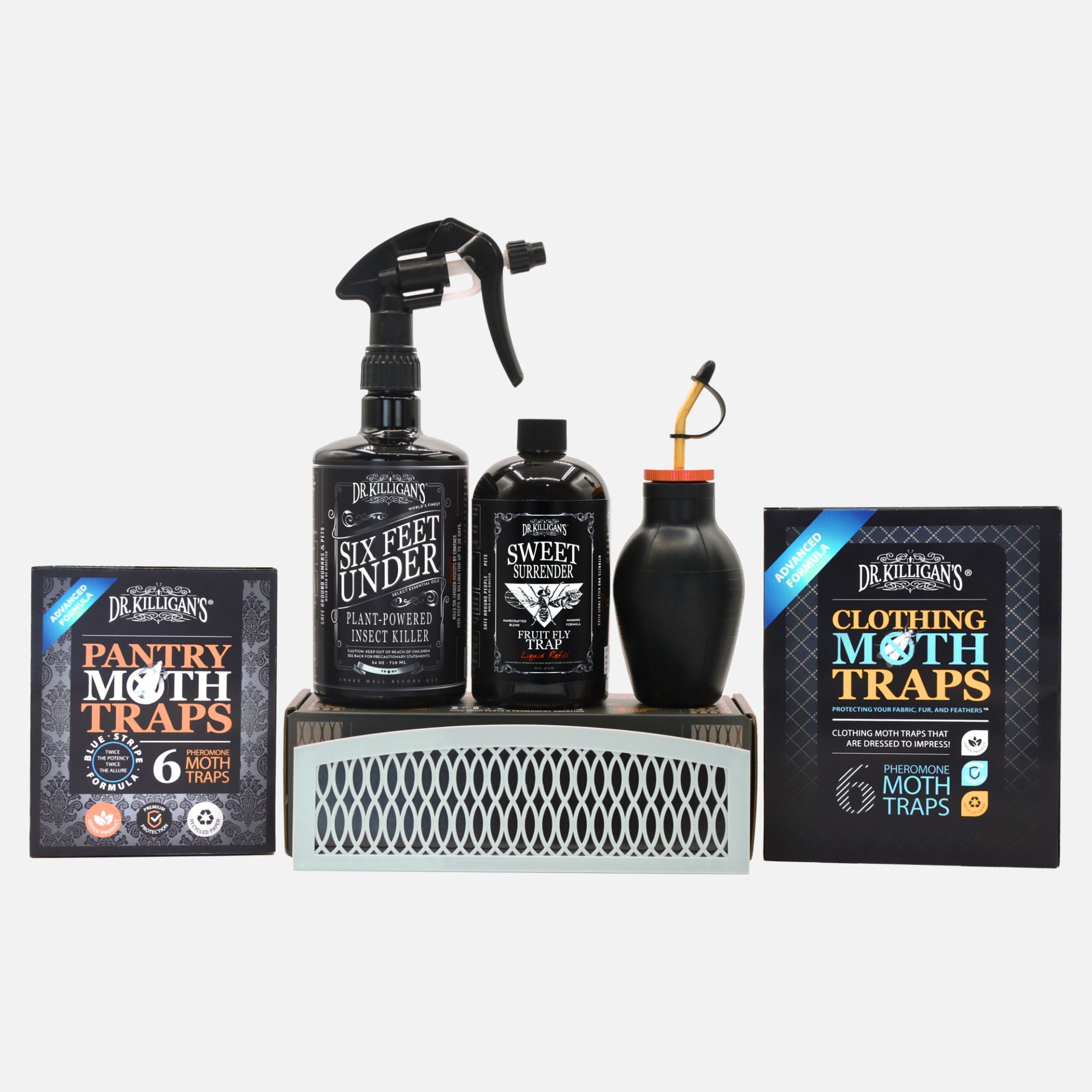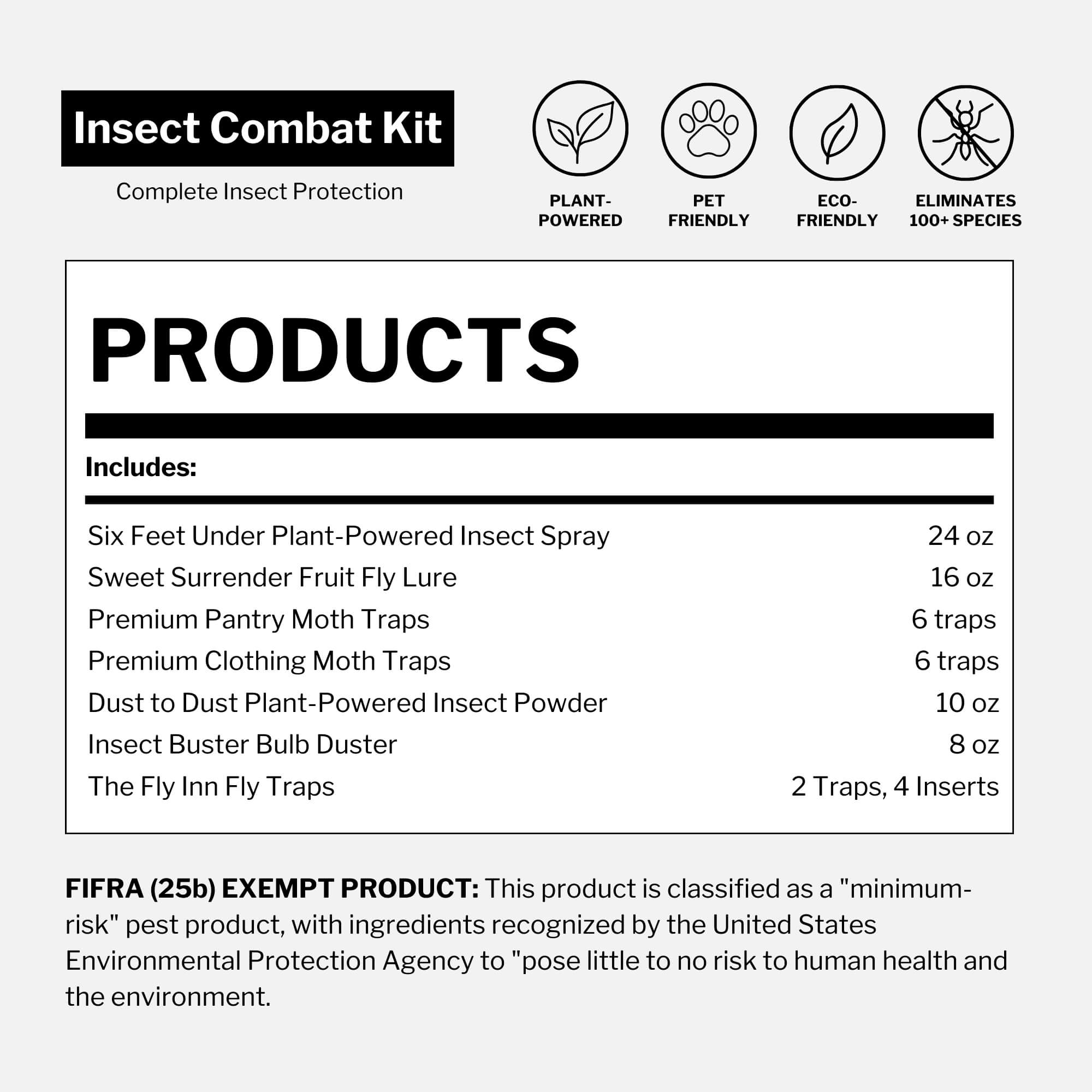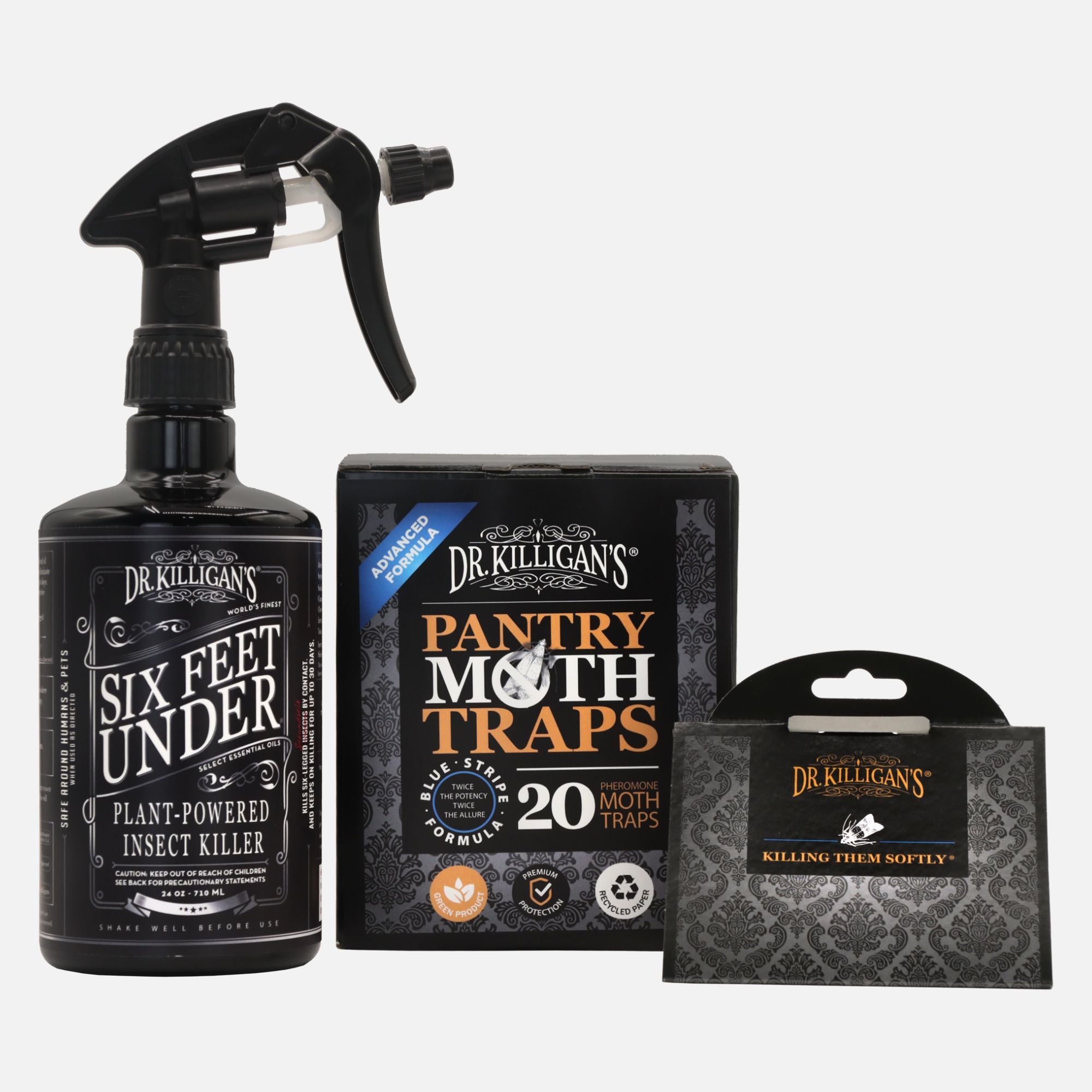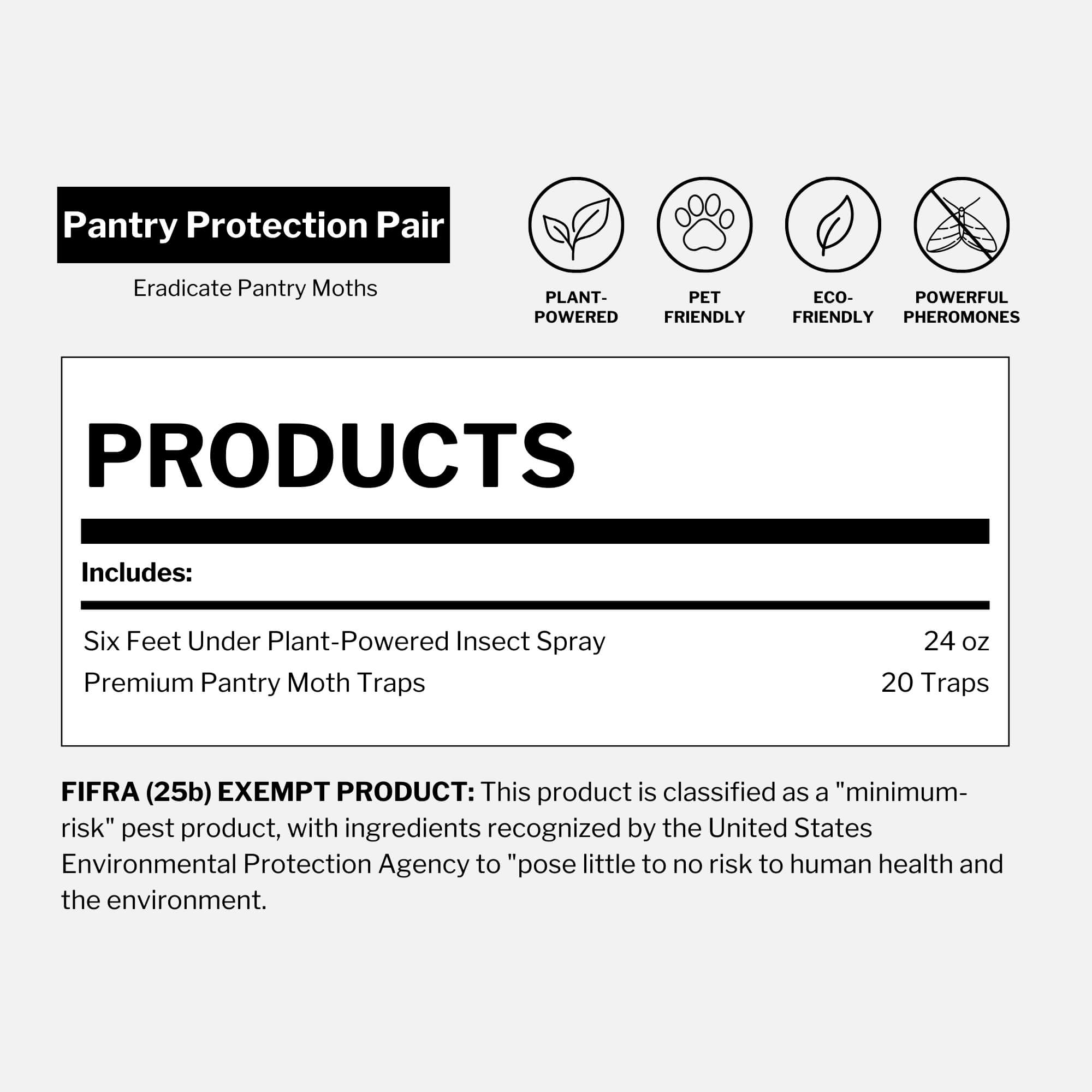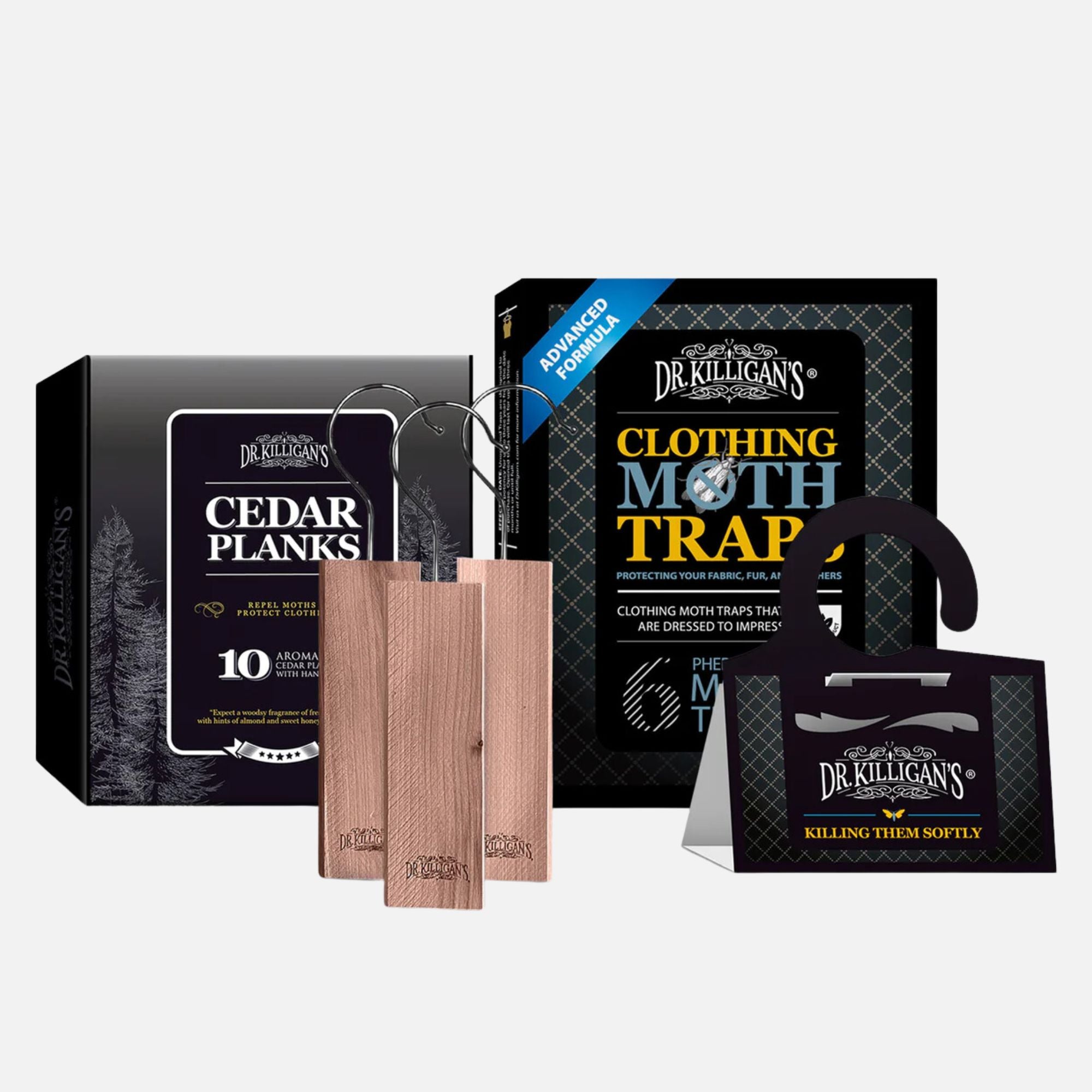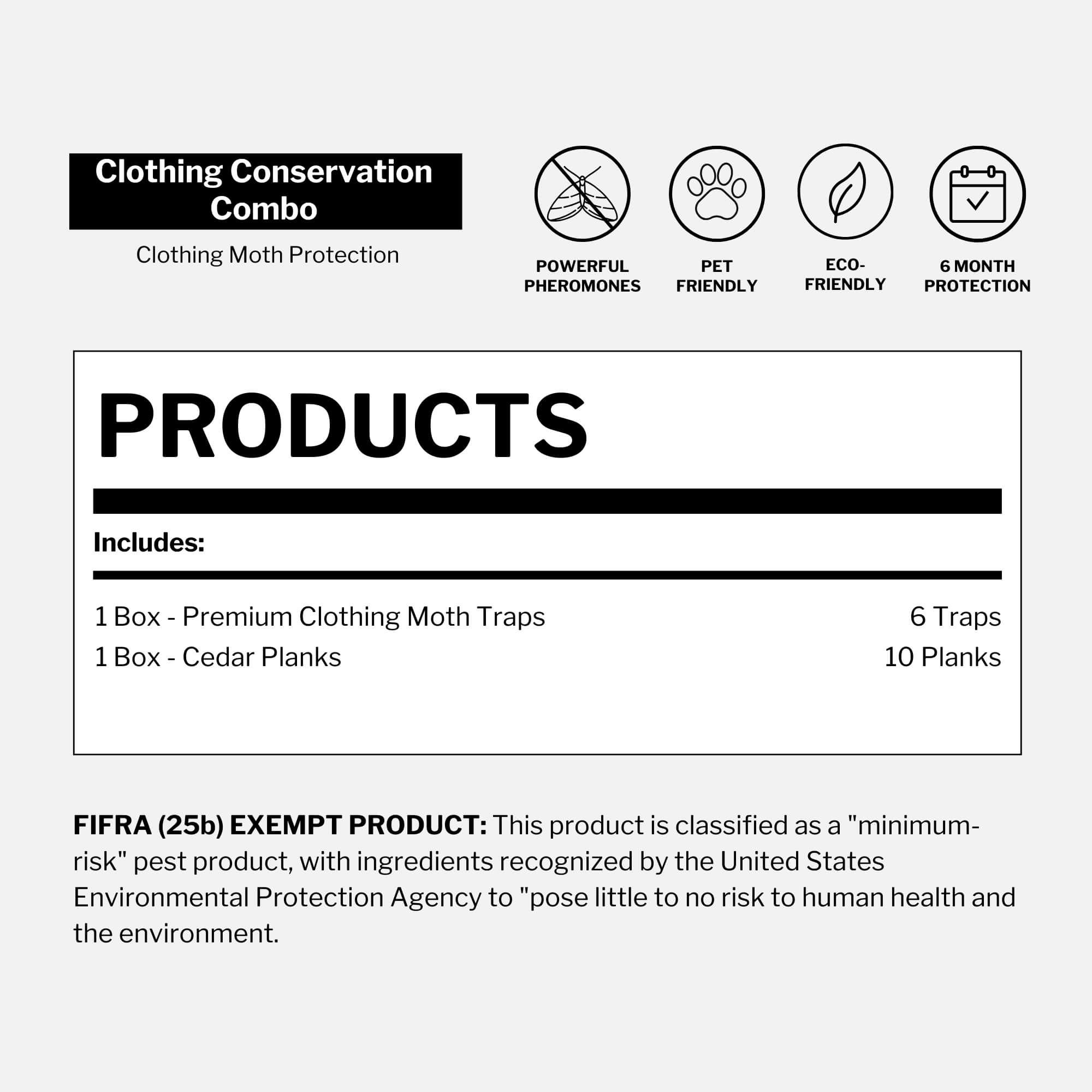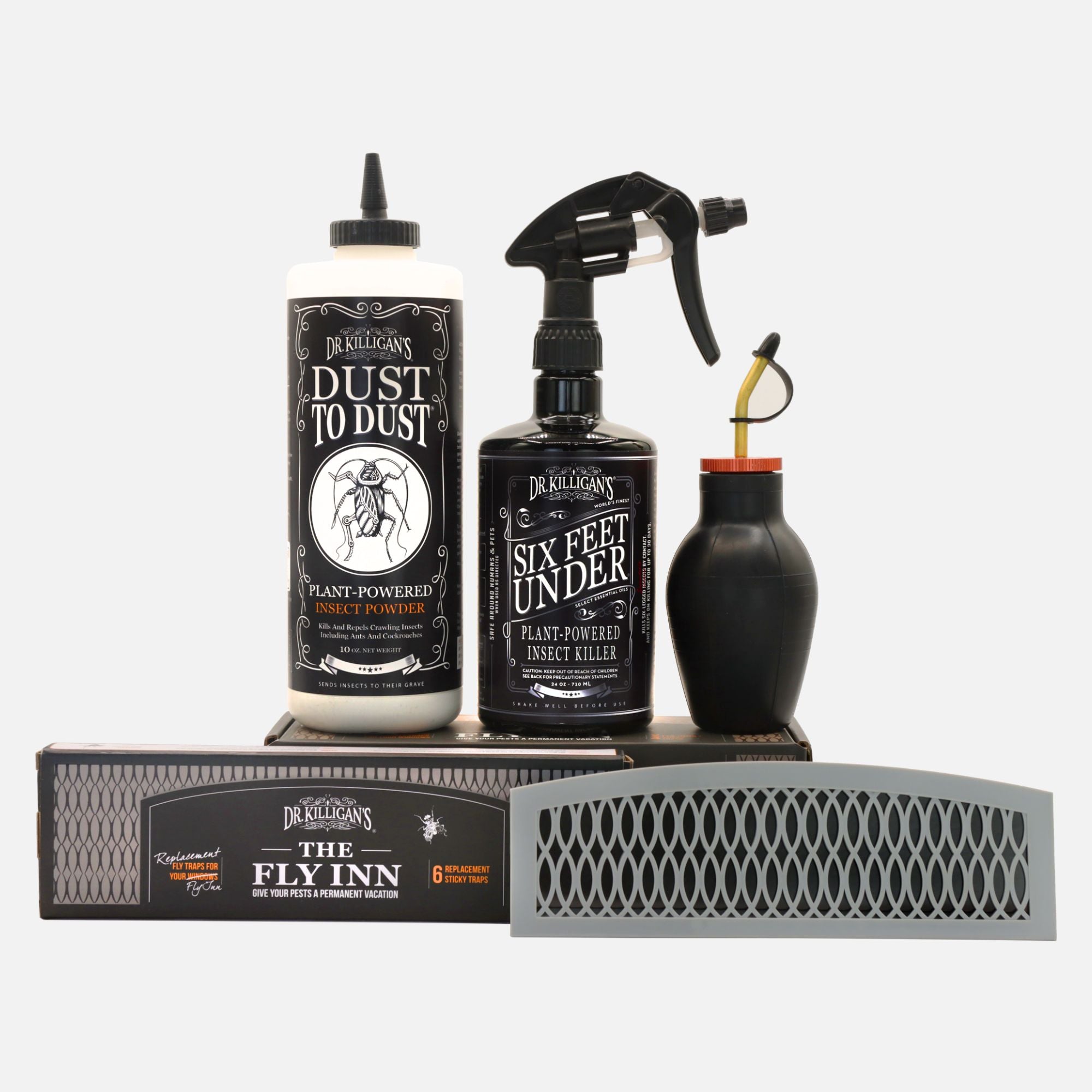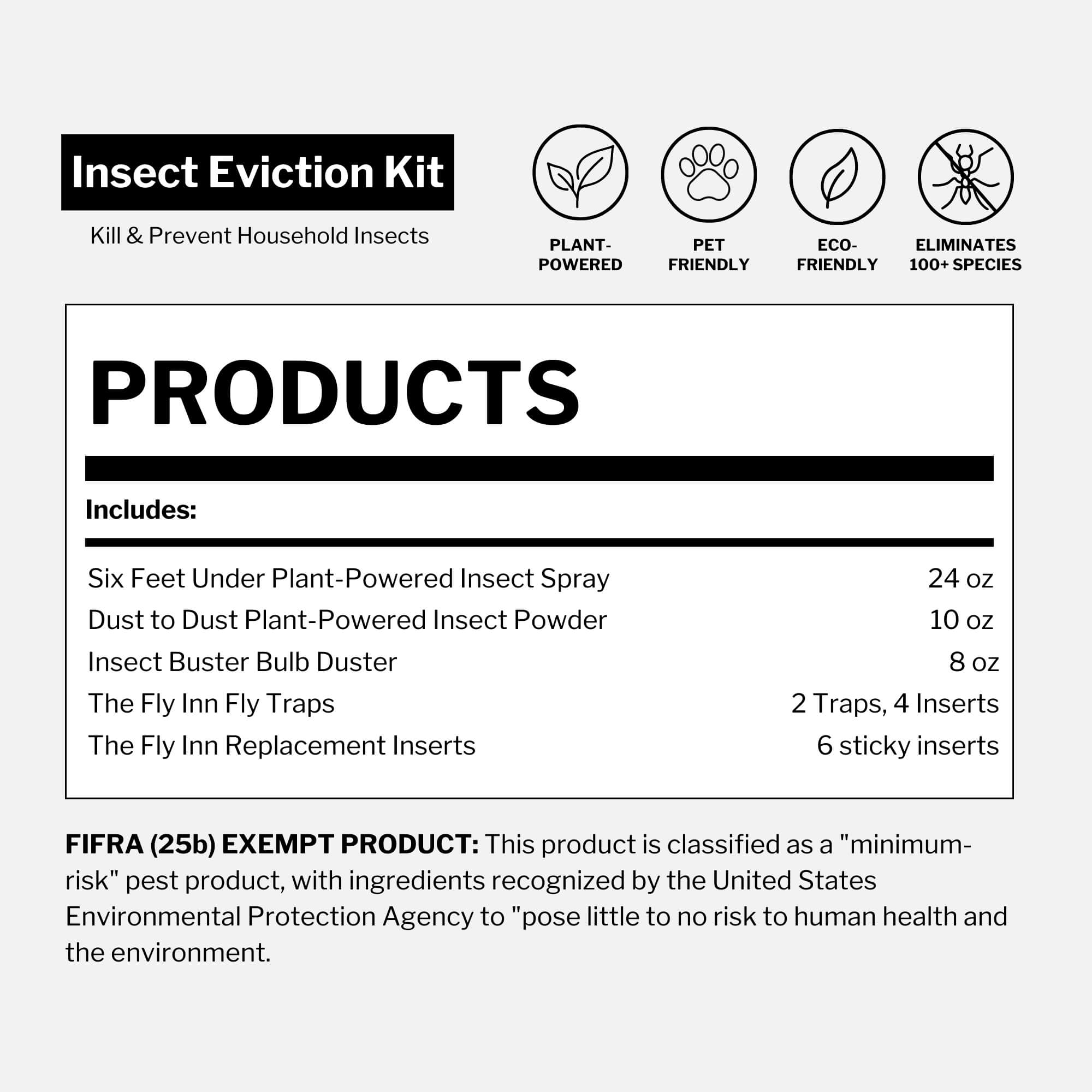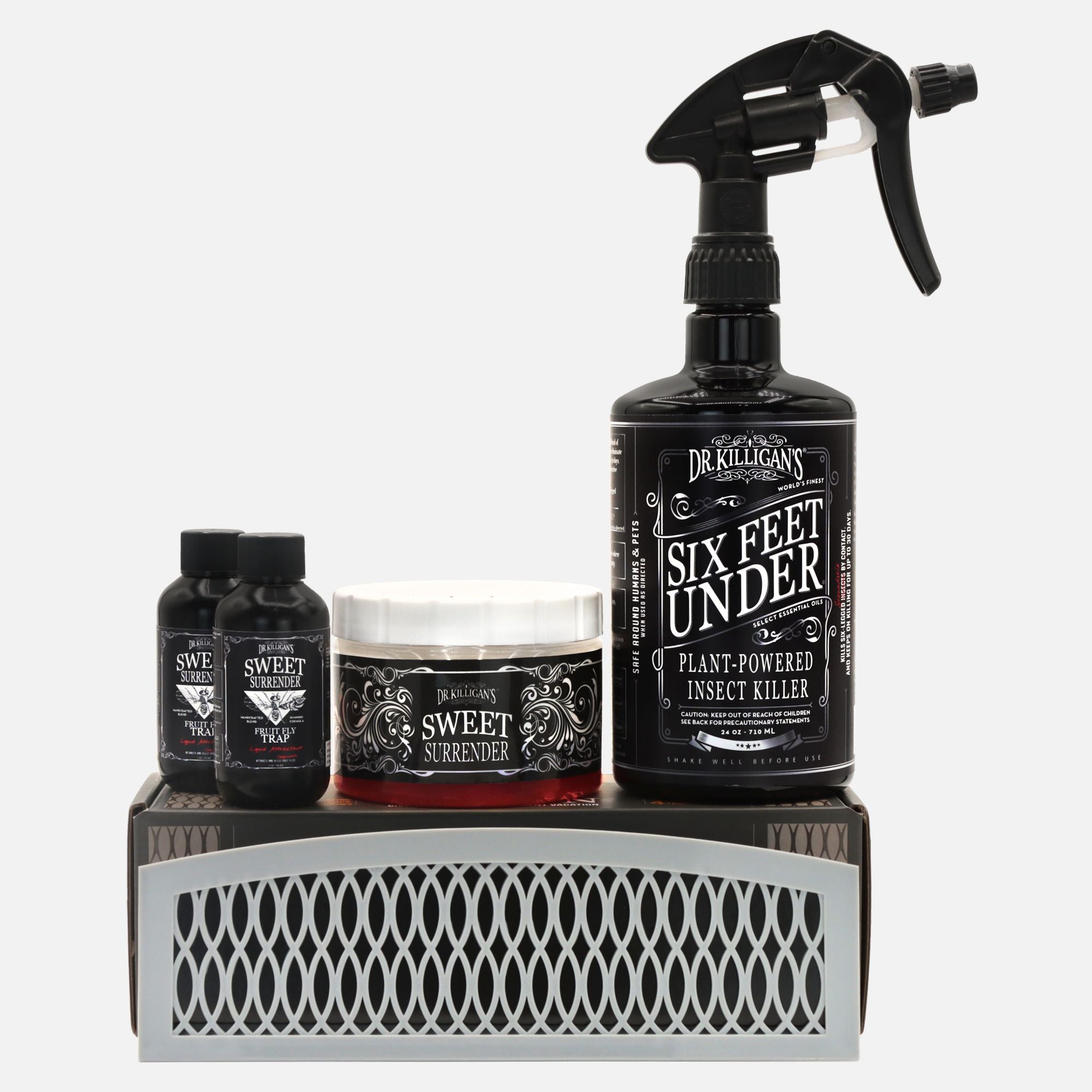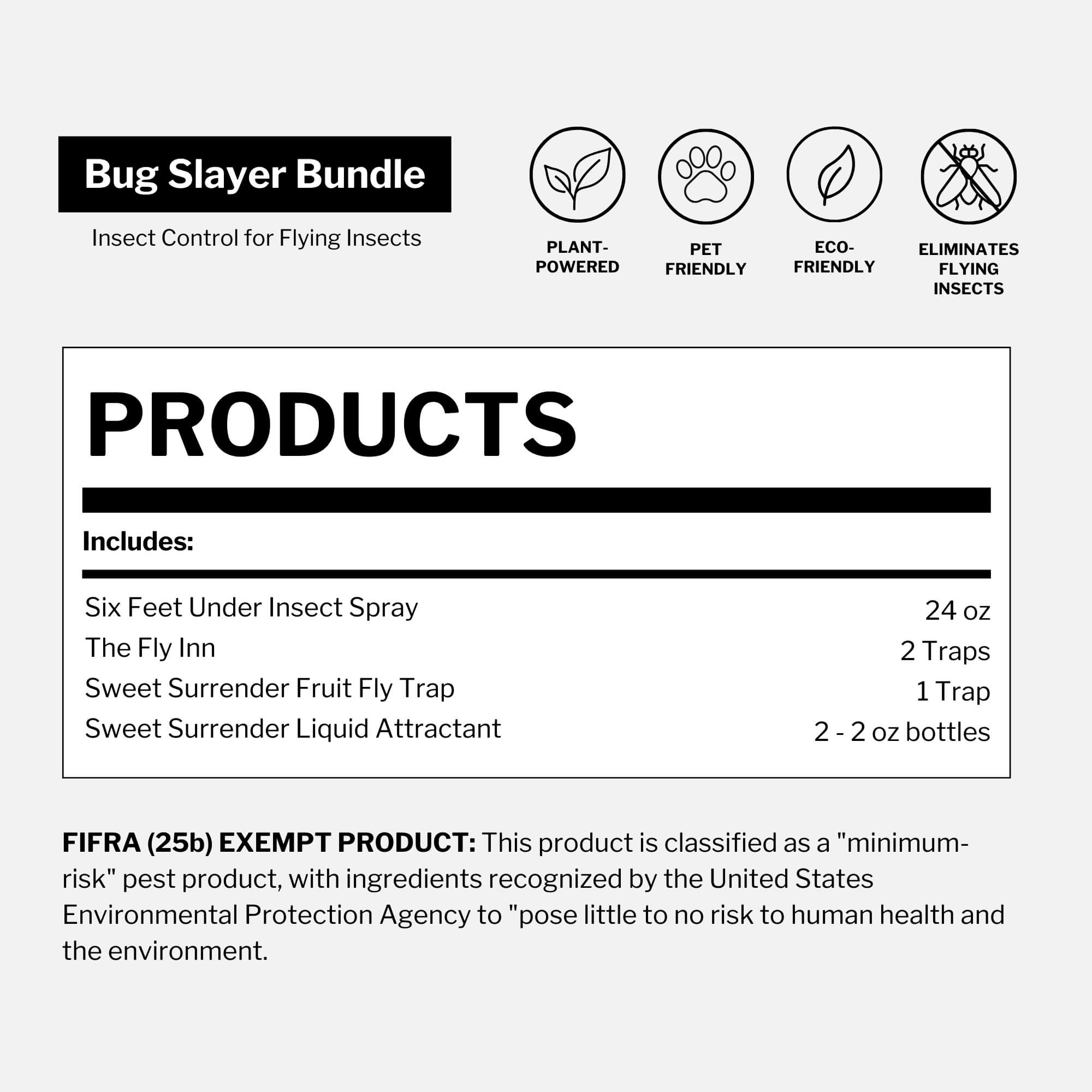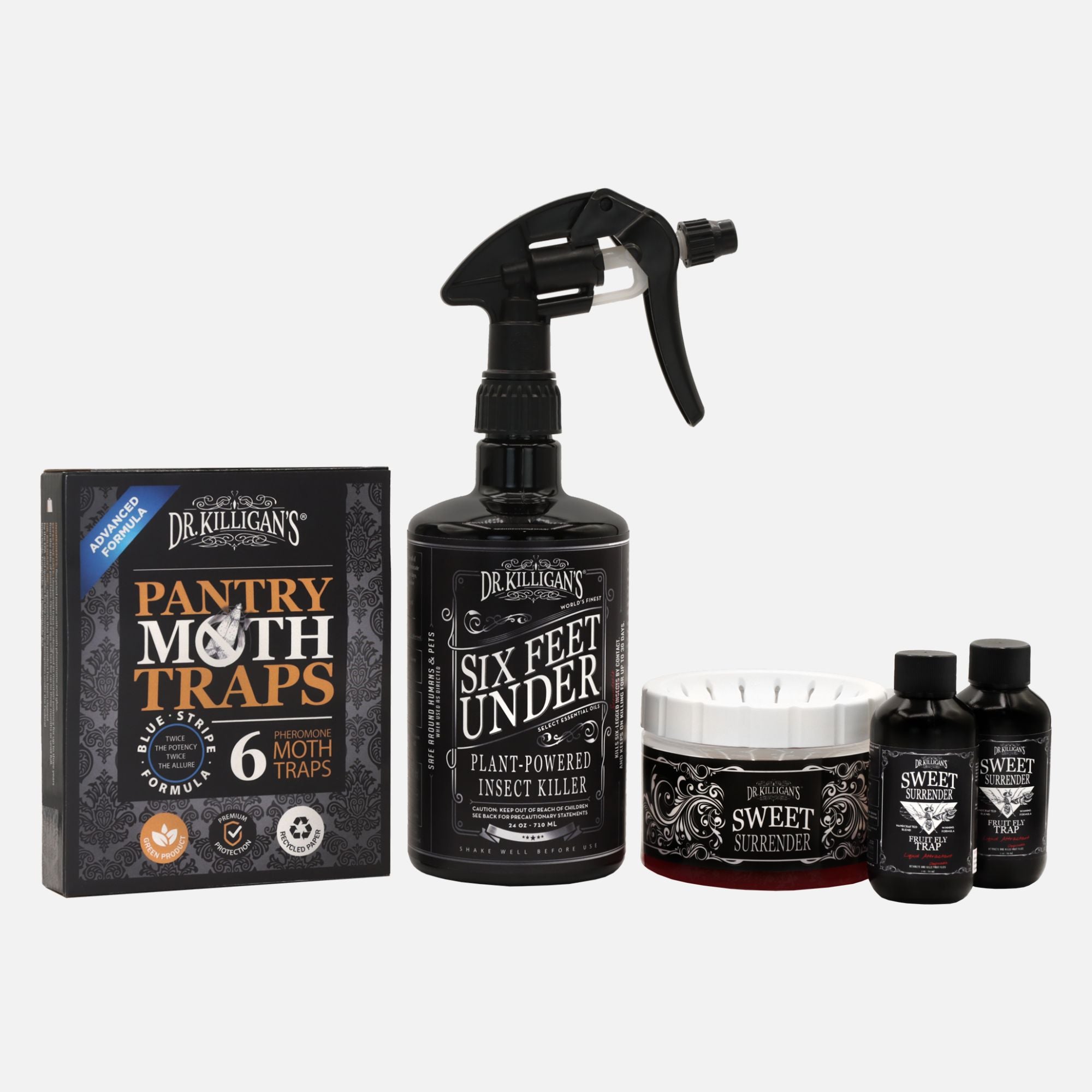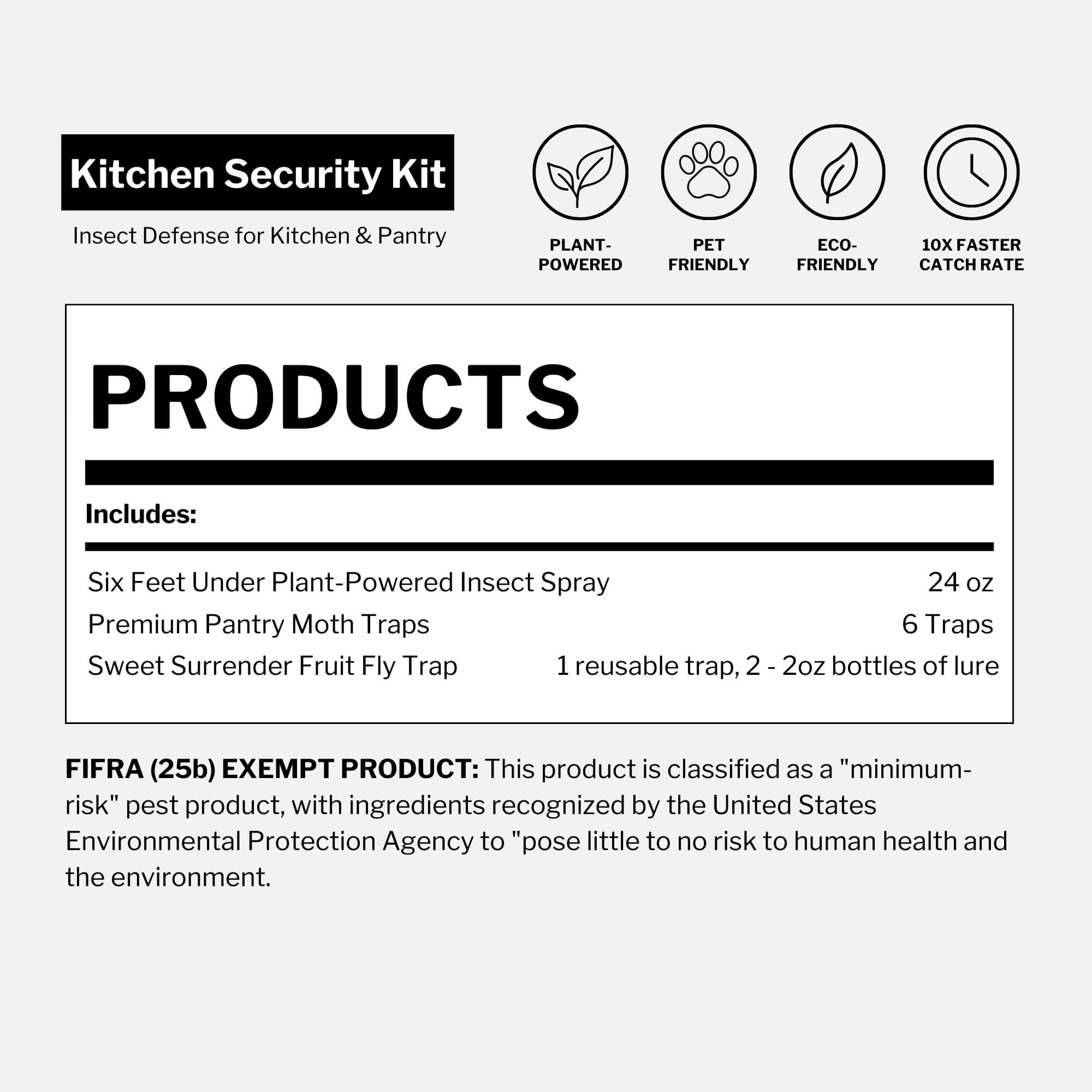Updated October 8, 2025
Identify the fly (house fly, fruit fly or drain fly). Remove what feeds it—lidded trash, wiped counters, clean drains. Trap light-seekers at windows with The Fly Inn Flying Insects Trap. For fruit flies, set Sweet Surrender Fruit Fly Trap near produce. Use Six Feet Under Plant-Powered Insect Spray for quick knockdown, then prevent the comeback with simple weekly habits.
How to identify house flies vs. fruit flies vs. drain flies
Not all “flies” are the same. A 10-second ID saves you time and puts the right tool in the right place.
| Pest | Quick ID (look for) | Where you’ll see them | What’s attracting them | First step |
|---|---|---|---|---|
| Housefly | Gray, larger than a pea; clear wings; noisy, erratic flight | At sunny windows, doors, kitchens | Open doors/screens, uncovered trash, food residue | Close entry points, secure lids on bins, wipe surfaces; trap at windows with The Fly Inn |
| Fruit fly | Tiny, tan/yellow; red or dark eyes; slow hover | Around fruit bowls, compost, sink area | Overripe fruit, sticky spills, recycling | Remove/cover produce; set Sweet Surrender near the source |
| Drain fly (moth fly) | Very small; fuzzy/triangular “moth-like” wings; short hops | Hovering over sinks, showers, floor drains | Organic buildup in drain pipes, traps | Clean the drain (scrub biofilm + hot water); do not use fruit-fly bait |
The common house fly—also written as housefly—behaves differently from fruit flies and drain flies, so correct ID saves time.
Tip: If they cluster on sunny glass, think houseflies. If they swarm fruit or vinegar, fruit flies. If they dance over a single drain, drain flies. Next up: your quick, five-step fix.
Quick fix checklist (5 steps)
How to get rid of flies in house—fast
1. Remove attractants (now)
Lid trash and compost. Wipe counters. Rinse recyclables. Toss or cover overripe fruit. Clean pet areas.

2. Trap light-seekers at windows
Place The Fly Inn at the bottom edge of your busiest windows (flies show positive phototaxis). Swap inserts when full.
3. Target fruit flies
Set Sweet Surrender by produce or the sink zone. One pour typically lasts ~6 weeks; up to 8 uses per refill. Not for drain flies.
4. Knock down flies and leave light residual
Use Six Feet Under for contact kill. For ongoing help, lightly mist porous surfaces (baseboards, entry frames) for up to ~30 days, when used as directed.
5. Block the comeback
Close doors/screens, fix gaps and run a fan facing outward when airing out. Keep bins sealed and wiped.
Safety: Always use products as directed. Keep out of reach of children and pets. Do not apply to skin or animals.
Prevention routine (weekly)
Here’s how to eliminate flies long-term: a simple, once-a-week sweep that stops problems before they start.

- Check screens & seals: Inspect window and door screens; repair any tears or gaps in screens and weatherstripping.
- Tighten lids & bins: Confirm indoor and outdoor trash/compost bins have tight-fitting lids; replace warped lids and carefully bag garbage to prevent breakage.
- Clean bins: Wash the inside and lid of bins. A mild borax + water solution (used as directed) helps reduce odors that attract flies.
- Tidy the yard: Don’t leave grass clippings or leaves to decay near the house; move yard waste away from entry points.
- Clear drains (if drain-fly risk): Scrub the inner collar/stopper to remove biofilm, then flush with hot water; run water in rarely used drains.
- Maintain products: Check The Fly Inn weekly and swap inserts when full; refresh Sweet Surrender on its normal cycle (~6 weeks), and spot-treat with Six Feet Under as needed—always as directed.
Everyday & situational habits
- Daily: Keep doors and unscreened windows closed; wipe spills; don’t leave dirty dishes out; rinse cans/bottles/containers before recycling; bag garbage carefully; scoop litter and pick up pet waste.
- As needed (immediate): Promptly remove any dead animals from the yard or home area.
- Situational: When airing out, point a fan toward the open door to push flies outside.
Where each product fits

- The Fly Inn—For houseflies and other light-seeking insects on windows. Place at the bottom edge of busy windows so insects enter at the wide top opening. Discreet design hides catches; kit includes 2 traps + 4 inserts.
- Sweet Surrender—For fruit flies only. Set near produce or sink zones. One pour typically lasts ~6 weeks; up to 8 uses per refill. Not for drain flies.
- Six Feet Under—For fast contact kill and light residual on porous surfaces (e.g., baseboards, door frames) for up to ~30 days when used as directed.
Related reading
- 4 natural ways to deter flies—Year-round, plant-based habits that make your home less appealing to house flies.
- Why are fruit flies so hard to get rid of?—The science behind their persistence and how traps like Sweet Surrender help.
- Can drain flies make you sick?—Reassurance on health concerns plus safe removal steps.




